- Home
- Janet Dailey
Texas Free Page 18
Texas Free Read online
Page 18
“It wouldn’t be easy. But family is family.”
“You could write me in care of the Rimrock,” she said, and immediately wished she’d kept her mouth shut. “But you’ll be busy either way. And why bother? I know this is good-bye.”
They had stopped by a spot where the creek formed a dark pool, overhung with willows. It seemed the right place. She turned to face him.
“You did a good thing for me last night, Tanner McCade. And I hope I did a good thing for you. No regrets. So shall we leave it at that?”
“Rose—”
“No, not another word,” she said. “Kiss me good-bye and leave me right here. At least we’ll be ending this with a good memory.”
Without another word he gathered her in his arms. His lips were gentle, sweetly caressing, shattering her heart like hammer blows. “You’re the best, Rose,” he whispered. “You’re solid gold. Remember that.”
Rose blinked back a tear. “Be safe, Tanner,” she said.
“You too.” He released her and walked away. Just once he turned and looked back. She gave him a smile before he disappeared from sight. A moment later she heard the sound of his truck driving off.
Rose stood for a moment, looking down at the water. Then she wiped her eyes, pulled on her worn-out leather gloves, and went back to digging fence wire. At least she’d known enough to expect this. People left—they died, they went away, or they let her down, and in the end she could count on no one but herself. No expectations, no disappointments, and no regrets.
Tanner hadn’t hurt her. Showing her that sex could be tender, even thrilling, wasn’t at all a bad thing. And she’d certainly given him a good time. So call it an even exchange and move on.
She thrust her shovel into the dirt, but the next length of barbed wire wouldn’t come up. It was caught on something, probably a tree root. She pushed the blade deeper, then put her weight on the handle to pry it up. When she still couldn’t free it, she scraped the dirt away with her gloved hands, hooked the wire with her fingers, and pulled hard. The wire came loose, pitching her backward onto her rump. Her finger was bleeding where a barb had gouged her through a hole in her glove.
Sitting in the dirt, she pulled off her bloodstained glove. At least Ramón had taken her to a government clinic a few years ago and had her properly immunized, including a tetanus shot. But here she didn’t even have a bandage.
As her grandfather might have said, this was a metaphor for life. It kicked you onto your behind and made you bleed, and when it happened, all you could do was get up and keep going.
But sometimes it hurt. Sometimes it hurt a lot.
* * *
The drive from the Texas panhandle to Wyoming’s Wind River Mountains was long and grueling. But Tanner had learned that if he started early, paced himself, and took occasional rest breaks, he could make it in a single day. He drove with the windows down and the radio blaring whatever country music station he could tune in. Sometimes, when he felt himself flagging, he even sang along, loud and off-key.
But mostly he thought about Rose. In his mind, he could still see her, standing by the creek, alone and proud, trying to prove to him that she didn’t care. But he knew that she did care. He cared, too. And it wasn’t just because he’d made love to her or even that it had been wonderful. It was her honesty that got to him. She was truth, courage, tenderness, and compassion wrapped up in one feisty little package—and she deserved so much better than the hand that life had dealt her.
In two weeks he’d be going back to his job in Texas. He didn’t plan to see Rose—no future there except pain and regret. But he already wanted to. He wanted to see her, to touch her, and to sleep with her—so much it hurt.
At dusk he stopped for drive-up coffee, switched on his headlights, and turned the radio up full volume to keep him awake. It was after eleven when he took the freeway exit and almost midnight by the time he turned onto the dirt road by the sign that said MCCADE RANCH, 4 MILES. A doe and her fawn crossed the road in his headlights. Tanner braked to let them pass. A few minutes later he pulled up to his brother’s two-story log house.
The lights were off in the house, but Tanner had already planned to sleep in the small, empty bunkhouse that stood nearby. He shouldered his duffel and stepped out of the truck, his legs stiff from the long drive. The air that met his face and filled his lungs was cold and sweet, smelling of sagebrush, grass, and cattle. Wyoming air. It smelled like home.
The bunkhouse was unlocked, the bed made up and waiting for him. Exhausted, Tanner flung down his duffel, stripped off his clothes, and crawled between the sheets.
In the morning he would greet his brother’s big, noisy family and join them around the breakfast table. He would be cheerful, uncomplaining, and willing to shoulder more than his share of the work. With the calving season on, there would be plenty to do—tending the cows and calves, making sure the new little ones were healthy, warm, and nursing as they should be, along with taking care of the other animals.
He would visit the two lonely graves on the hilltop and try, again, to make peace with what had happened, or at least try to make some sense of it.
And he would try not to think about Rose.
But as he sank into sleep, the face he saw in his dreams had a striking crimson blaze down its left border.
CHAPTER THIRTEEN
Two weeks later
APRIL HAD RIPENED INTO EARLY MAY. SPRING RAINS HAD KISSED THE Rimrock with blazing color. The bluebonnets had faded, but patches of firewheel, Indian paintbrush, black foot daisies, and buttercups dotted the foothills and open flatlands. Bees hummed in the sunshine. Where horses and cattle stepped in the lush spring grass, butterflies rose in clouds.
Rose’s vegetable garden had sprouted. She guarded the small green plants as if they were her children, watering them each day inside the low border she’d covered with netting to keep out hungry birds and animals.
Jasper had helped her finish the fence, using salvaged metal posts to support the barbed wire. They’d even found the old iron gate her grandfather had erected years ago and put it in place.
Jasper was busy with his duties on the ranch, but he enjoyed coming by to visit when he could spare the time. Today he was helping Rose build a chicken coop. When it was finished, Bernice had promised her three young laying hens and a rooster.
“I was remembering that other coop we built on the Rimrock, when you were just a sprout,” Jasper said. “Let’s hope this one is just as sturdy and lasts just as long.”
“I plan to be here the whole time.” Rose held a nail for him to pound. “This is my home, and I’m putting down deep roots.”
“That’s all well and good,” Jasper said. “But you’re still a young woman. You could find yourself a good man, have a family to raise and carry on after you.”
“Some people were meant to be alone. Like you.” Rose placed another nail.
“Now me, that’s another story,” Jasper said. “If my Sally hadn’t died before our wedding, we’d have taken over her parents’ farm in the hill country, and I’d have had a whole different life. But she was my one true love, and I’ve never found another.”
“Well, since I’m not expecting my one true love to show up anytime soon, I’ll just soldier on. I don’t need a man to give me a good life. I can do that for myself.”
“Now, I don’t know about that,” Jasper said. “That nice TSCRA ranger who came by to make sure you’d be looked after seemed to have taken quite a shine to you.”
Rose felt the stab of memory like a deep pain, but she willed herself not to show it. “Tanner’s gone,” she said. “And anyway, he was still mourning his wife. He told me how she died in a fire with their little boy and unborn baby. Maybe he’ll be like you. Maybe she was his one true love.”
“Maybe. But I could tell he liked you a lot.” Jasper unfolded his lanky frame and went to fetch the roll of fine-gauge wire he’d stashed in the back of his truck. “Here, hold this at the end while I staple it to the
posts. I can’t stay much longer today, but we should be able to finish this coop the next time I come by.”
After Jasper had left, Rose stood back to survey her small kingdom. The coop, when finished, would be strong enough to keep out any predator. It would be wonderful, waking up to the crow of the rooster and gathering fresh eggs for breakfast.
She was glad she’d kept the old camper. It would be useful for storing tools and chicken feed. As for the trailer, now that the generator and tanks had been hooked up, it had become the perfect little home. She could even shower and cook in it. Bull had hired a man in town to come by and service the tanks, freeing her from the worry of maintenance.
To repay a small part of what Bull had done for her, she had given him her most valuable possession, the double-barreled shotgun that had belonged to her grandfather. She knew Bull had long admired the weapon that had killed Hamilton Prescott. For a time in Mexico, it had belonged to Don Ramón, given to him as a gift for taking Rose into his care. After Ramón’s death, Rose had hidden it from the cartel and brought it back to Texas. Now the powerful gun belonged to Bull. He had accepted it as his due, without protest. It seemed right, somehow, that he should have it.
Even so, the thought of all that Bull had done, and continued to do for her, raised a troubling concern. Her dwindling cash reserves were bound to run out in the next few months. She couldn’t be dependent on Bull. She needed her own income—either a job or something she could sell.
Eggs? That was a nonstarter. Three hens wouldn’t lay enough eggs to sell. And people around here already had places to buy eggs. She’d thought about goat cheese, too. María had taught her how to make the wonderful cheese she’d sold on market days back in Río Seco, before the cartel took over. But this wasn’t Río Seco. There were government health and packaging regulations, and the matter of a business license. And of course, she had no goats and no place to set up a cheese-making operation.
On her last trip to town she’d picked up a local newspaper, in the hope of finding a job. But there was nothing suitable for a woman. Nobody was going to hire her as a truck mechanic or a ranch hand.
But one ad in the For Sale section had caught her interest. A farmer in the area was selling off surplus lambs.
Rose knew a lot about sheep. The Ortega family had raised a small flock of sheep in Mexico. The days she’d spent in the saddle, herding sheep in the desert with Don Ramón’s nephews, Raul and Joaquin, had given her some of the happiest memories of her life. She often thought about the two young men who had been like her older brothers. They’d gone off to work and she’d never heard from them again. Had they crossed the border and taken refuge in the United States? Had they gone over to the cartel? Were they even alive?
But back to the lambs. Rose had cared for her share of orphaned and abandoned lambs, teaching them to drink from a bottle, getting up every four hours to feed them at night, snuggling them under a blanket to keep them warm. How much would it cost her to buy several lambs and raise them to sell in the fall?
What would it take? Rose could almost feel her brain whirring into action. She would need a strong, sheltered pen to keep them safe, with plenty of straw for warm bedding. If the lambs weren’t weaned, she would need bottles, nipples, and formula mix. And she would need to pay a veterinarian for services like vaccinations. Could she manage all that and still sell them at a profit at the end of the season? It was a scary prospect but one that excited her.
When the lambs were big enough to graze on their own, she could run them on the federally owned open rangeland that bordered one end of her property. Keeping them safe and getting them in at night would be a full-time job. Maybe that would be the time to get herself a good herding dog. If the plan worked out this year, she could raise even more sheep in the future.
She was surveying her yard, thinking about the best spot for a sheep pen, when another thought slammed her like a cold fist.
Bull.
He wasn’t going to like this. Bull was a cattleman to the bone, and Rose remembered hearing him talk. Like most cattlemen, he had no love for sheep. “Range maggots,” he called them, claiming that they tended to bite grass off all the way to the root, leaving the land barren where they’d grazed. Bull didn’t just dislike sheep. He hated them.
Her agreement on the property transfer gave her the right to use her land any way she wanted. That included raising sheep. But if she chose to do this, she couldn’t expect any more help from Bull, and probably none from Jasper, either. She would be on her own.
It was a heavy decision. But after thinking it over, Rose decided that, before she made up her mind, the least she could do was learn more about the sheep-raising option.
The next morning, she drove into Blanco Springs and used a pay phone to call the number in the newspaper ad. The man who answered her call and gave her directions to the farm sounded elderly and was slightly deaf, but his friendly manner put her at ease.
The farm was on the far side of town, an immaculate place with a pretty white cottage, a big red barn, and spring hay fields waving in the breeze. The aging farmer, who introduced himself as Ezra Perkins, was waiting in the yard when Rose drove in.
“My wife’s not doing so well, so we’re moving to a senior facility next week,” he said. “It’s a nice-enough place, and Merle will have the care she needs, but I’ll never stop missing my farm. Come on, young lady. I’ll show you the lambs.”
Limping slightly, he led her around to the far side of the barn. There, in a metal pen with a built-in shade roof, were four lambs. They appeared to be about six weeks old, an age when they’d still be taking milk but would soon be ready to wean. Their tails and their testicles, if any, were already docked.
“Every year I’ve enjoyed raising a few orphan lambs and selling them in the fall,” the farmer said. “But I won’t be around to finish with these, and the man who bought my farm doesn’t want them. I’ll give you a good price just to get them off my hands. I’ll even throw in their pen. It comes apart, so it’s easy to move. You could haul it in your truck.”
Rose had been prepared to give the lambs a quick look and go her way. But Ezra Perkins’s offer was pure temptation. Four healthy, adorable lambs and a stout pen to put them in. The farmer would probably throw in the milk bottles and a supply of milk replacer, too. She sighed. “Let’s talk price,” she said. “And maybe you can give me an idea of what they’d sell for at the end of the season.”
The numbers made enough sense to convince her. Rose walked away with a deposit paid and a promise to come back tomorrow with the rest of the cash. After the final payment, she would take the pen, along with a box of milk bottles and supplies and some hay and straw, in her truck. Perkins, who had a comfortable trailer for hauling the lambs, would follow her home and help her set up the pen.
As she climbed into her truck and started the engine, she could feel herself shaking. She’d actually done it. She’d committed the money and taken the risk. Tomorrow, come what may, she would be a sheep owner.
What would Bull say? What would Jasper say? She couldn’t imagine they’d be pleased. But she’d taken a step toward real independence, and she couldn’t help feeling proud of herself.
Would Tanner be proud of her, too, if he knew what she’d done? But why wonder? He was out of her life, their lovemaking nothing more than a bittersweet memory.
* * *
By the time Tanner had finished pitching hay for the cows with newborn calves, it was almost suppertime. He washed his hands and face at the outside pump, glad that the long day of work was coming to an end. It had been the right thing to do, taking two weeks off work to help his brother; and it had been decent of Clive to let him go. But he couldn’t help worrying about how the time off would affect his job. And he couldn’t help worrying about Rose and how she was getting along.
Wiping his wet hands on his jeans, he stood for a moment, gazing out across the pastures of long, waving grass toward the snowcapped Wind River Mountains beyond. Was the
re a more beautiful place in the world than this ranch, with its broad meadows, aspen forests, and pine-carpeted slopes? Yet this land could be harsh and unforgiving, with its deep winter snows and frigid winds. It took a special breed to survive here, he thought. The McCades belonged to that breed—a close-knit family of strong, hardworking people. He had been part of their world until grief had driven him out of it. Now he felt almost like a stranger.
At supper, he sat at the long plank table with his family—Clint; Ruth, who’d given birth to a healthy boy; and the four towheaded youngsters—two older boys and two girls—arranged like steps along one side of the table. They bowed their heads while Clint said grace, then passed around bowls of beef stew with potatoes and carrots. It was a simple meal, but as always there was plenty of food for everybody.
“Are the new calves doing all right? Any trouble nursing?” Clint was four years older than Tanner, a half-inch taller, raw-boned, and unsmiling, his dark hair already streaked with gray.
“I checked them all,” Tanner said. “They’re doing fine, and the cows have plenty of hay and water. Anything else?”
“That paint mare’s been favoring her left forefoot. I think she might have a loose shoe,” Clint said.
“I’ll take care of it first thing in the morning.” With no farrier available, Tanner had become an expert at keeping their horses well shod. Over time, with no professional help available, the brothers had also become expert plumbers, electricians, and mechanics. Given the parts, or even having to improvise, they could fix almost anything.
“Have some more stew, Tanner.” Ruth was the perfect ranch wife. Four days after giving birth she was already on her feet, taking care of her family. Despite the ravages of time, hard work, and bearing five children, she was still an attractive woman with cornflower blue eyes and short blond hair. She’d had a stressful confinement, but now that her baby boy had arrived safely, Ruth had regained her cheerful nature.
How would Rose fit in with this big, outgoing family? But why even ask such a question? His time with Rose had been a sweet, healing interlude. But he’d walked away and put her behind him. She had her own life to live. So did he.

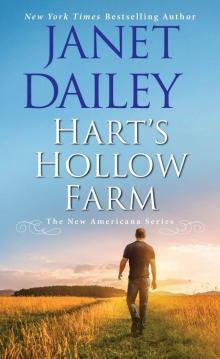 Hart's Hollow Farm
Hart's Hollow Farm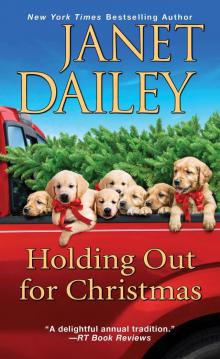 Holding Out for Christmas
Holding Out for Christmas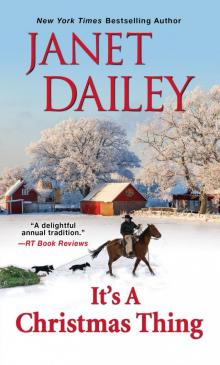 It's a Christmas Thing
It's a Christmas Thing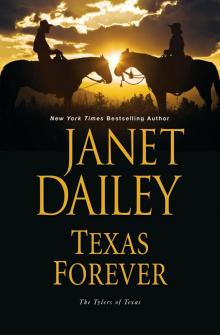 Texas Forever
Texas Forever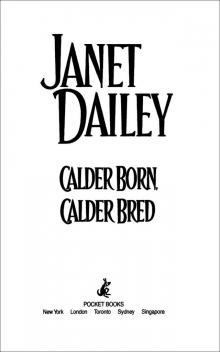 Calder Born, Calder Bred
Calder Born, Calder Bred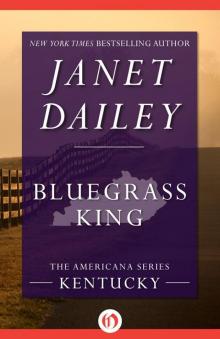 Bluegrass King (The Americana Series Book 17)
Bluegrass King (The Americana Series Book 17)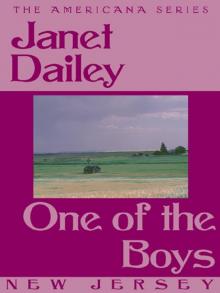 One of the Boys
One of the Boys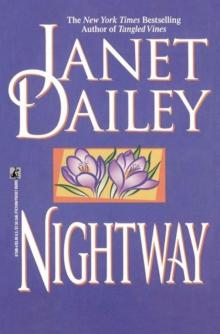 Nightway
Nightway This Calder Sky
This Calder Sky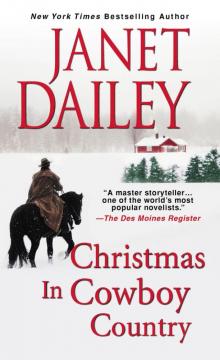 Christmas in Cowboy Country
Christmas in Cowboy Country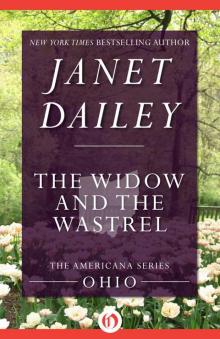 The Widow and the Wastrel
The Widow and the Wastrel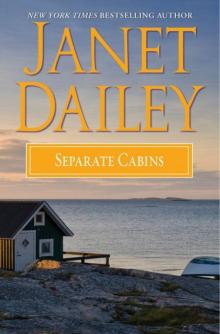 Separate Cabins
Separate Cabins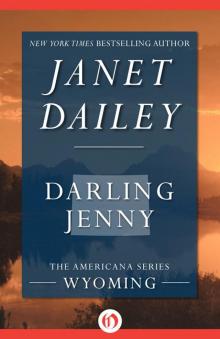 Darling Jenny
Darling Jenny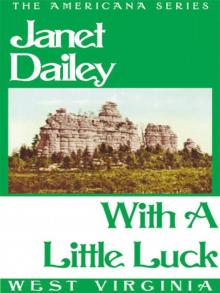 With a Little Luck
With a Little Luck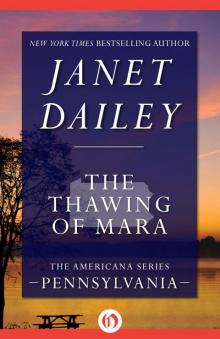 The Thawing of Mara
The Thawing of Mara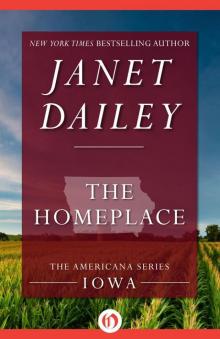 The Homeplace (The Americana Series Book 15)
The Homeplace (The Americana Series Book 15)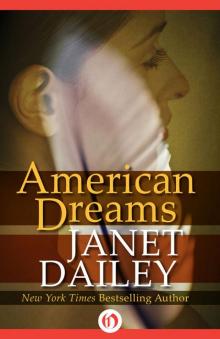 American Dreams
American Dreams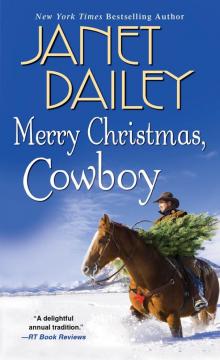 Merry Christmas, Cowboy
Merry Christmas, Cowboy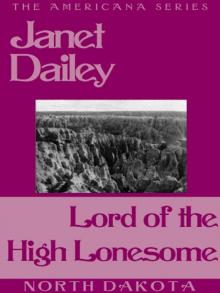 Lord of the High Lonesome
Lord of the High Lonesome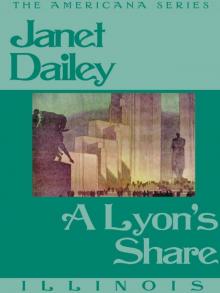 A Lyon's Share
A Lyon's Share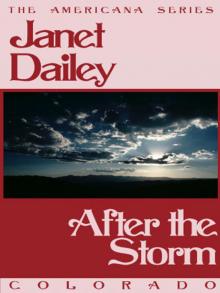 After the Storm
After the Storm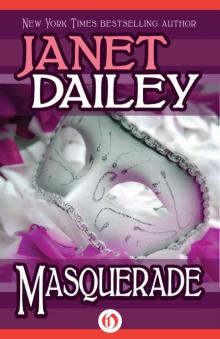 Masquerade
Masquerade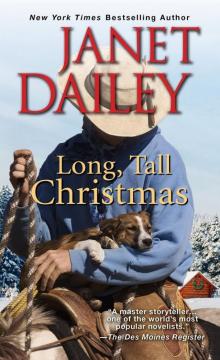 Long, Tall Christmas
Long, Tall Christmas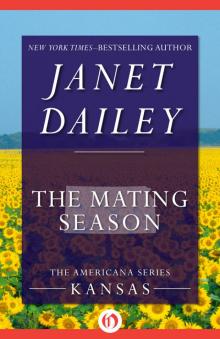 The Mating Season
The Mating Season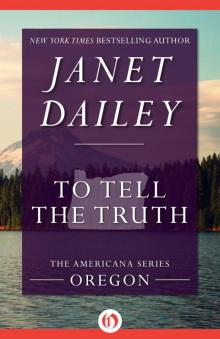 To Tell the Truth
To Tell the Truth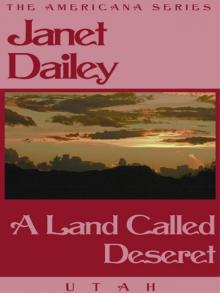 A Land Called Deseret
A Land Called Deseret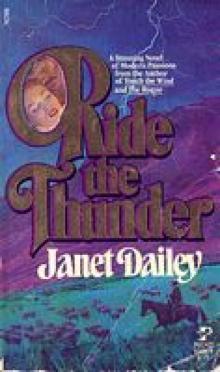 Ride the Thunder
Ride the Thunder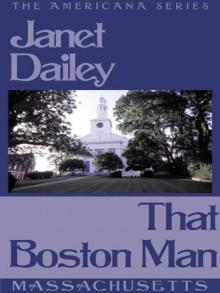 That Boston Man
That Boston Man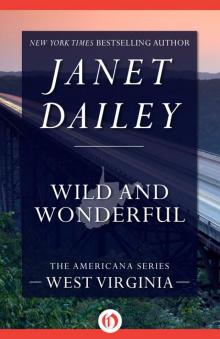 Wild and Wonderful
Wild and Wonderful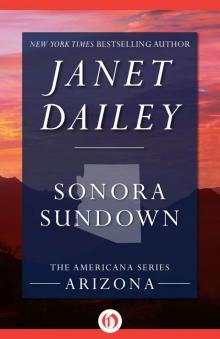 Sonora Sundown: Arizona (The Americana Series Book 3)
Sonora Sundown: Arizona (The Americana Series Book 3)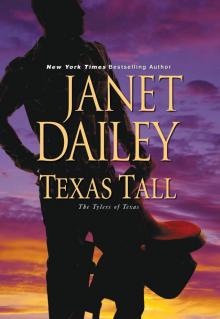 Texas Tall
Texas Tall Giant of Mesabi
Giant of Mesabi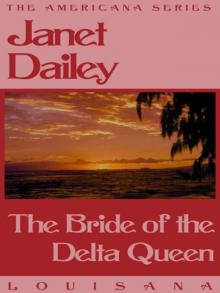 The Bride of the Delta Queen
The Bride of the Delta Queen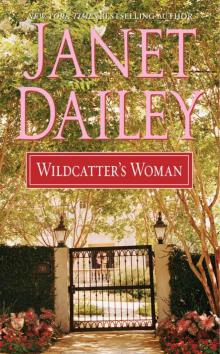 Wildcatter's Woman
Wildcatter's Woman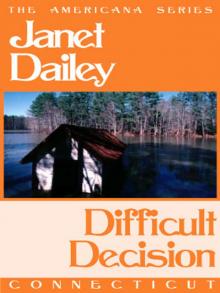 Difficult Decision
Difficult Decision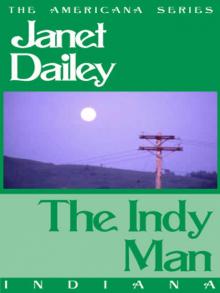 The Indy Man
The Indy Man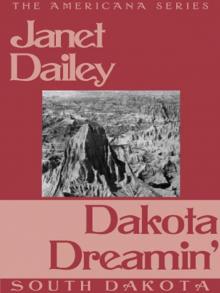 Dakota Dreamin'
Dakota Dreamin' Kona Winds
Kona Winds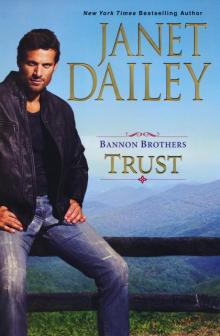 Bannon Brothers
Bannon Brothers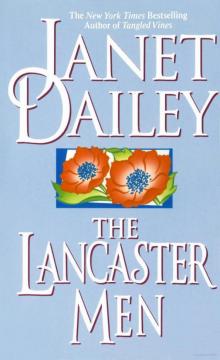 The Lancaster Men
The Lancaster Men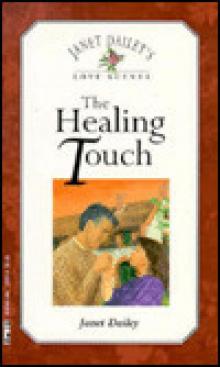 janet dailey- the healing touch
janet dailey- the healing touch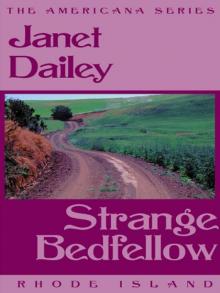 Strange Bedfellow
Strange Bedfellow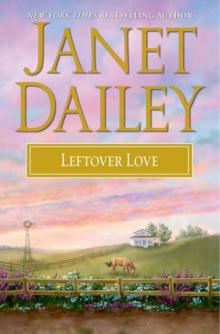 Leftover Love
Leftover Love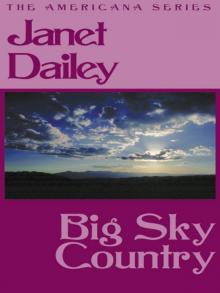 Big Sky Country
Big Sky Country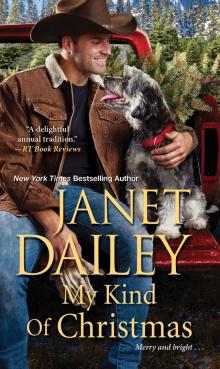 My Kind of Christmas
My Kind of Christmas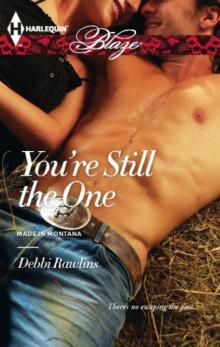 You're Still The One
You're Still The One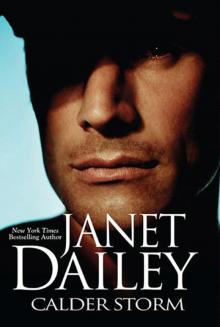 Calder Storm
Calder Storm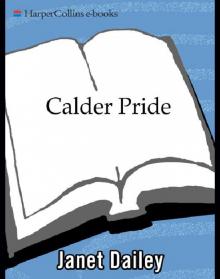 Calder Pride
Calder Pride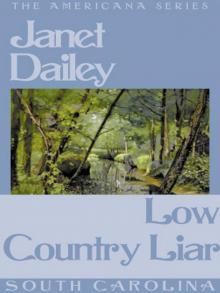 Low Country Liar
Low Country Liar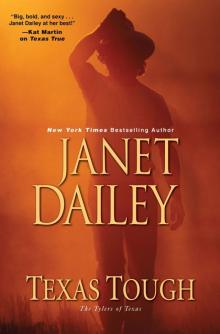 Texas Tough
Texas Tough Foxfire Light
Foxfire Light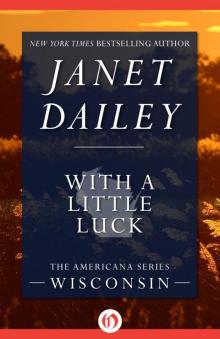 With a Little Luck (The Americana Series Book 49)
With a Little Luck (The Americana Series Book 49)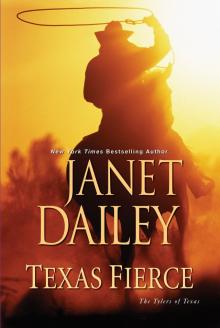 Texas Fierce
Texas Fierce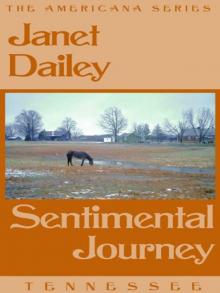 Sentimental Journey
Sentimental Journey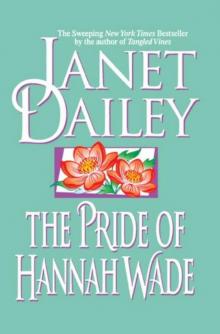 The Pride of Hannah Wade
The Pride of Hannah Wade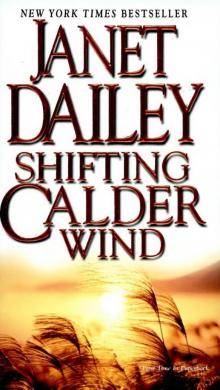 Shifting Calder Wind
Shifting Calder Wind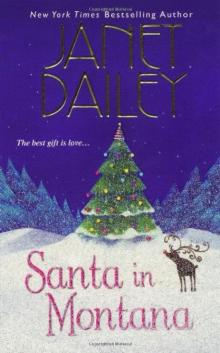 Santa In Montana
Santa In Montana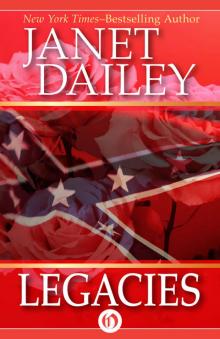 Legacies
Legacies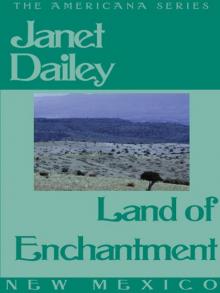 Land of Enchantment
Land of Enchantment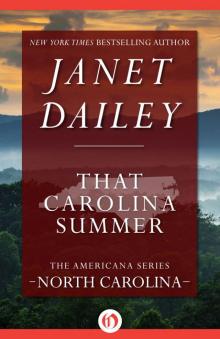 That Carolina Summer (North Carolina)
That Carolina Summer (North Carolina)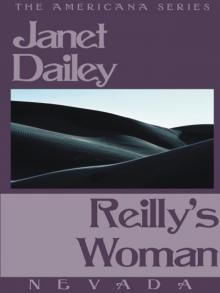 Reilly's Woman
Reilly's Woman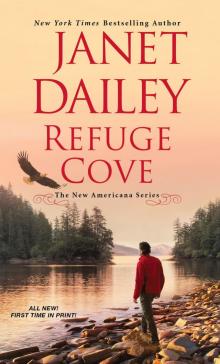 Refuge Cove
Refuge Cove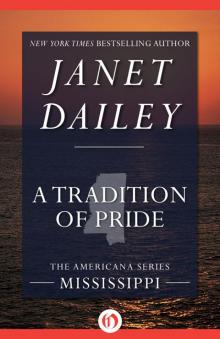 A Tradition of Pride
A Tradition of Pride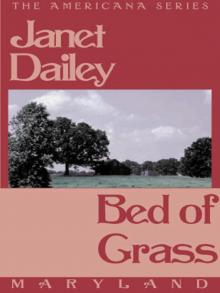 Bed of Grass
Bed of Grass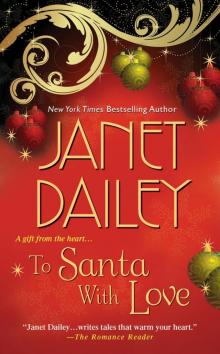 To Santa With Love
To Santa With Love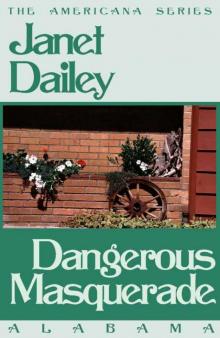 Dangerous Masquerade
Dangerous Masquerade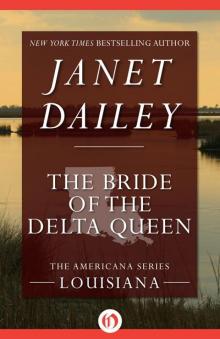 The Bride of the Delta Queen (The Americana Series Book 18)
The Bride of the Delta Queen (The Americana Series Book 18)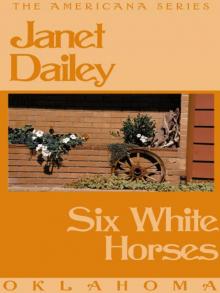 Six White Horses
Six White Horses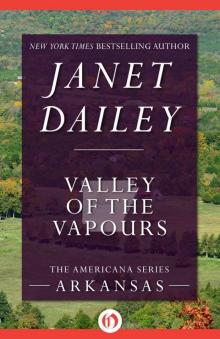 Valley of the Vapours (The Americana Series Book 4)
Valley of the Vapours (The Americana Series Book 4)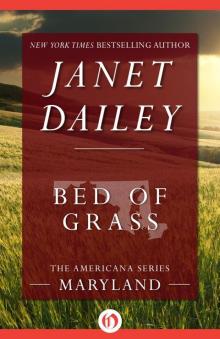 Bed of Grass (The Americana Series Book 20)
Bed of Grass (The Americana Series Book 20)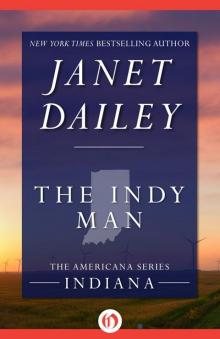 The Indy Man (The Americana Series Book 14)
The Indy Man (The Americana Series Book 14)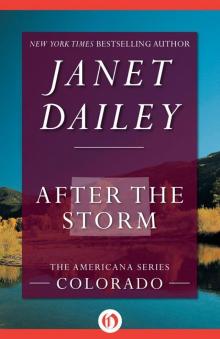 After the Storm (The Americana Series Book 6)
After the Storm (The Americana Series Book 6)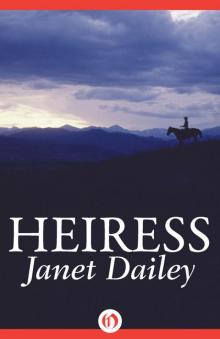 Heiress
Heiress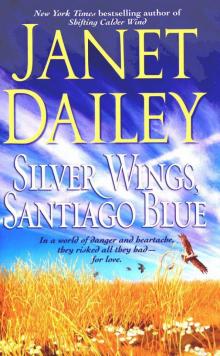 Silver Wings, Santiago Blue
Silver Wings, Santiago Blue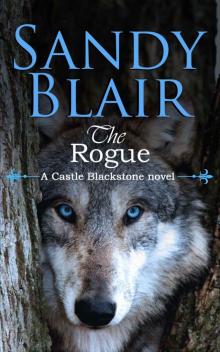 The Rogue
The Rogue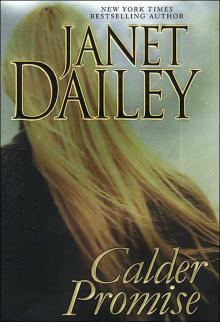 Calder Promise
Calder Promise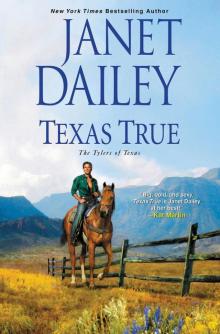 Texas True
Texas True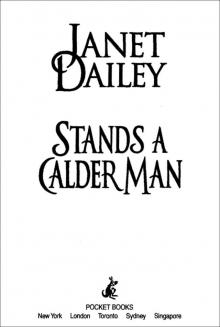 Stands a Calder Man
Stands a Calder Man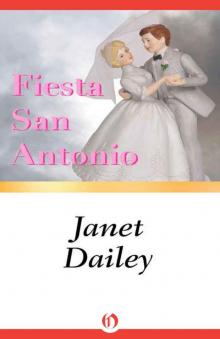 Fiesta San Antonio
Fiesta San Antonio Fire and Ice
Fire and Ice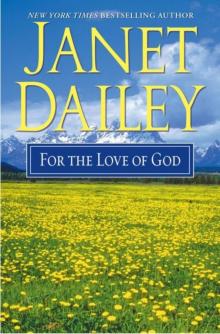 For the Love of God
For the Love of God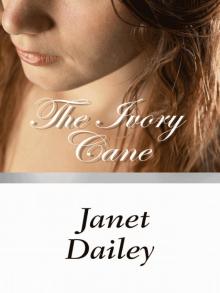 The Ivory Cane
The Ivory Cane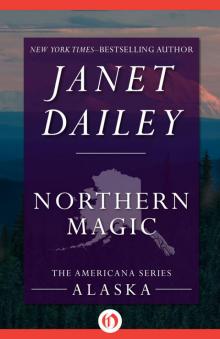 Northern Magic
Northern Magic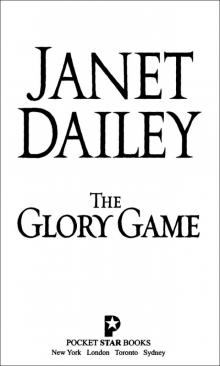 The Glory Game
The Glory Game The Homeplace
The Homeplace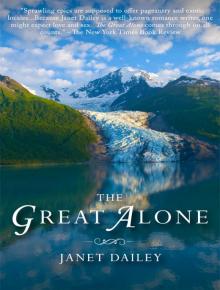 The Great Alone
The Great Alone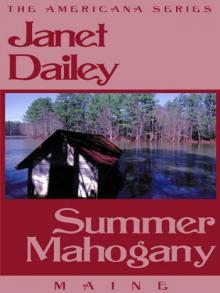 Summer Mahogany
Summer Mahogany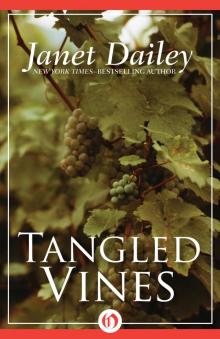 Tangled Vines
Tangled Vines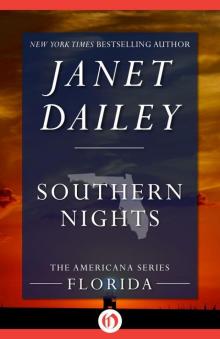 Southern Nights: Florida (The Americana Series Book 9)
Southern Nights: Florida (The Americana Series Book 9)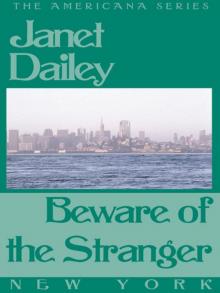 Beware of the Stranger
Beware of the Stranger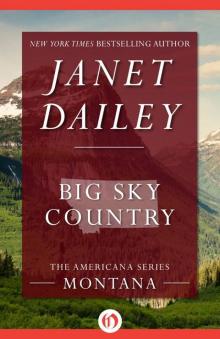 Big Sky Country: Montana (The Americana Series Book 26)
Big Sky Country: Montana (The Americana Series Book 26)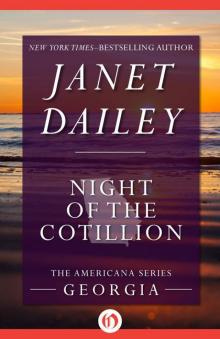 Night of the Cotillion: Georgia (The Americana Series Book 10)
Night of the Cotillion: Georgia (The Americana Series Book 10)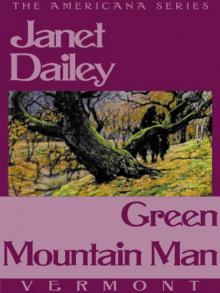 Green Mountain Man
Green Mountain Man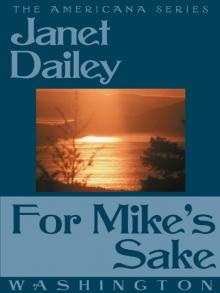 For Mike's Sake
For Mike's Sake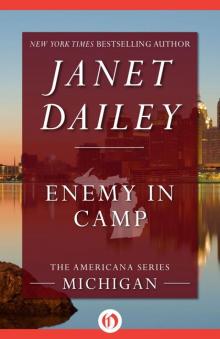 Enemy in Camp (The Americana Series Book 22)
Enemy in Camp (The Americana Series Book 22)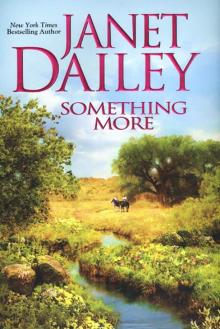 Something More
Something More Rivals
Rivals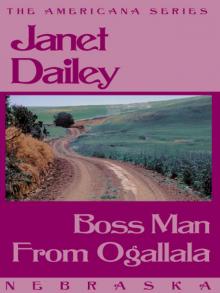 Boss Man from Ogallala
Boss Man from Ogallala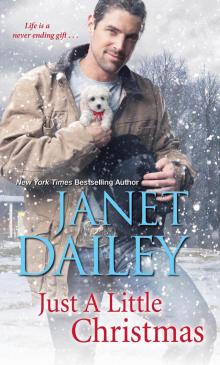 Just a Little Christmas
Just a Little Christmas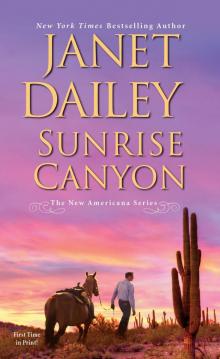 Sunrise Canyon
Sunrise Canyon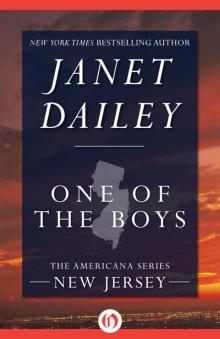 One of the Boys (New Jersey)
One of the Boys (New Jersey)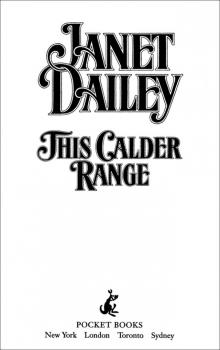 This Calder Range
This Calder Range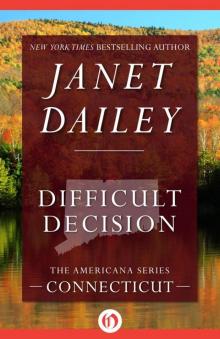 Difficult Decision: Connecticut (The Americana Series Book 7)
Difficult Decision: Connecticut (The Americana Series Book 7)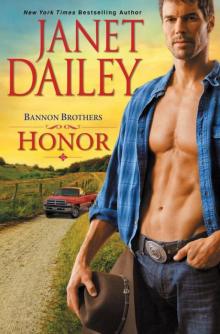 Honor
Honor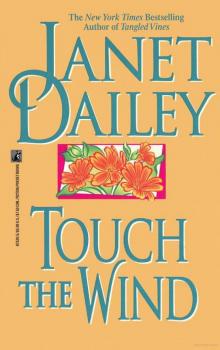 Touch the Wind
Touch the Wind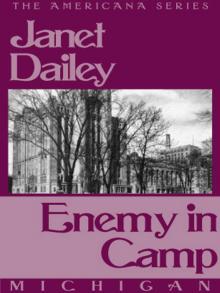 Enemy in Camp
Enemy in Camp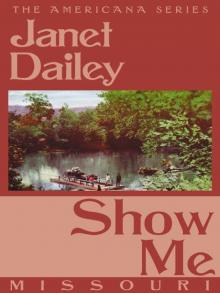 Show Me
Show Me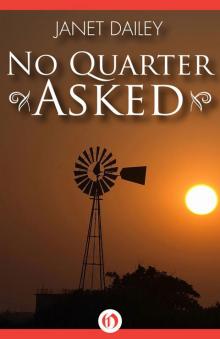 No Quarter Asked
No Quarter Asked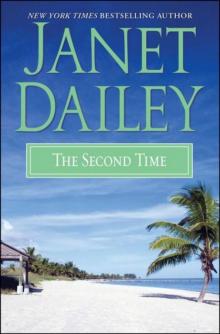 The Second Time
The Second Time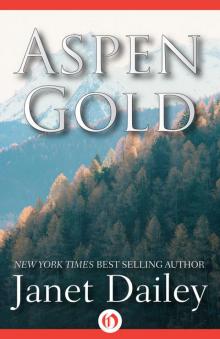 Aspen Gold
Aspen Gold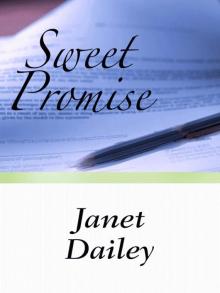 Sweet Promise
Sweet Promise Triumph
Triumph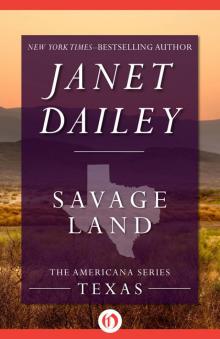 Savage Land
Savage Land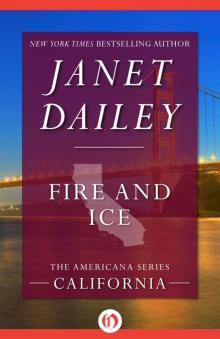 Fire and Ice (The Americana Series Book 5)
Fire and Ice (The Americana Series Book 5)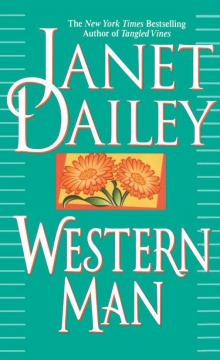 Western Man
Western Man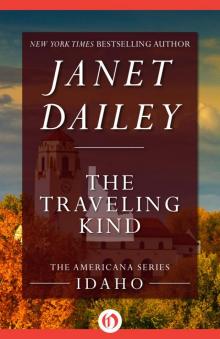 The Traveling Kind
The Traveling Kind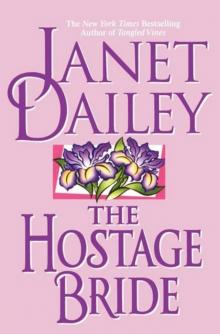 The Hostage Bride
The Hostage Bride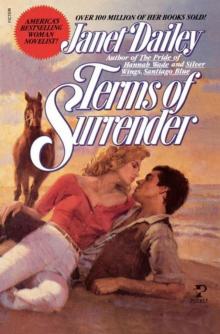 Terms of Surrender
Terms of Surrender Tidewater Lover
Tidewater Lover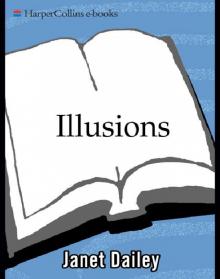 Illusions
Illusions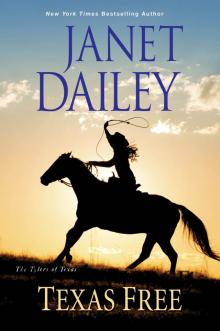 Texas Free
Texas Free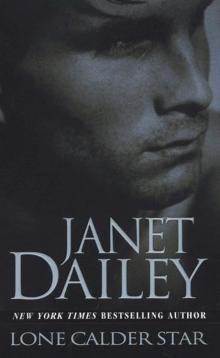 Lone Calder Star (Calder Saga Book 9)
Lone Calder Star (Calder Saga Book 9)